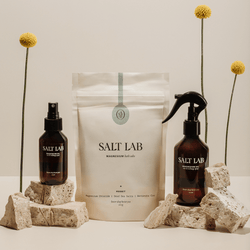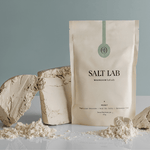Yep, that's right. Magnesium is used every day in our bodies for a variety of essential functions. It's an important mineral that plays a crucial role in numerous biochemical reactions, many of which occur daily to support normal bodily functions.

According to the National Institute Of Health an adult body contains approximately 25 g of magnesium, with 50% to 60% present in the bones and most of the rest in soft tissues. Less than 1% of total magnesium is in blood serum, and these levels are kept under tight control.

Here are some of the ways magnesium is used by the body daily:
-
Energy Production: Magnesium is a cofactor in various enzymatic reactions involved in converting the nutrients we consume (carbohydrates, proteins, and fats) into energy. These reactions occur in the cells of our body, and magnesium helps facilitate the process.
-
DNA and RNA Synthesis: Magnesium is required for the synthesis of DNA and RNA, the genetic materials that carry the instructions for cell growth, repair, and replication.
-
Protein Synthesis: Magnesium is involved in the synthesis of proteins, which are essential for building and maintaining tissues, enzymes, and various molecules within the body.
-
Nerve Function: Magnesium is necessary for proper nerve function and the transmission of nerve signals. It helps regulate the flow of ions across cell membranes, which is crucial for nerve impulses.
-
Muscle Contraction: Magnesium plays a role in muscle contraction and relaxation. It helps regulate the balance of calcium and potassium ions in muscle cells, which is essential for proper muscle function.
-
Heart Health: Magnesium is important for maintaining a steady heartbeat and supporting cardiovascular health. It helps regulate the electrical activity of the heart and keeps the heart rhythm stable.
-
Bone Health: Magnesium contributes to the structural integrity of bones and teeth. It is involved in the regulation of calcium metabolism, which is essential for bone health.
-
Enzyme Activation: Many enzymes in the body require magnesium as a cofactor to function properly. Enzymes are involved in numerous biochemical reactions that are vital for overall health.
Wow! That's a lot. Your body is very busy, doing what it needs to do to keep you healthy. Since magnesium is not produced by the body, we must obtain it from our diet or topical magnesium supplements like Salt Lab.

Foods rich in magnesium include leafy green vegetables, nuts, seeds, whole grains, and legumes. If you struggle to get the magnesium you need from diet alone, Salt Lab's Magnesium Oil Starter Bundle is a great way to try topical magnesium spray featuring our bestselling Magnesium Oil spray in a large 200ml bottle and a handy travel-size bottle to take on the run with you, making sure you never go without.
Or if you have a bath try our Magnesium Basic Bundle that includes our 200ml Magnesium Oil Spray and Magnesium Reset Bath Salts. Here's what our customers are experiencing:
"A Life Saver! Awesome products. Especially love the bath reset. I am suffering with fibromyalgia and post menopausal symptoms. These products have helped immensely with my 'self care' routine. I am annoyingly preaching/recommending this to everyone I know!" Kim R.
"It’s a keeper! Not leaving home without it. Where have you been all my life? Consistency is key - it’s not a once off cure. Use day in, day out and good things will happen. The joy of sound, restful sleep cannot be underestimated. Thank you Salt Lab!" Andrea N.

If magnesium intake is insufficient, it can lead to a deficiency that might result in various muscle cramps, anxiety, disrupted sleep or fatigue. Salt Lab's Magnesium Oil spray is the natural way to boost magnesium levels and is safe for the whole family. See our complete product range in our shop.


















